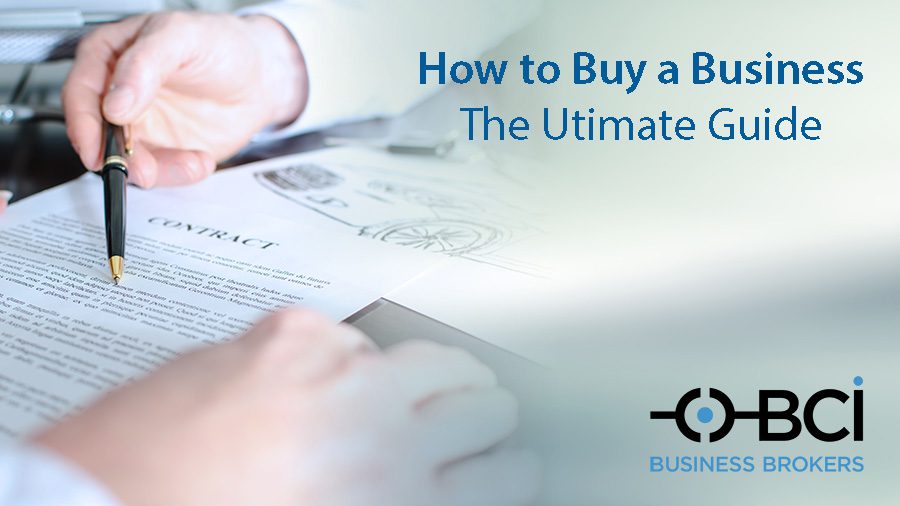Howdy! Are you considering the exciting journey of purchasing a business? Whether you’re a budding entrepreneur looking to take the reins of a new venture or an experienced investor seeking to expand your portfolio, buying a business can be a rewarding endeavour. However, this process comes with its own set of challenges and complexities. Fear not, for this comprehensive guide on how to buy a business will walk you through every step, from preparation to post-acquisition strategies, to ensure that your business acquisition is a success.
1. Introduction on how to buy a business
Understanding the Appeal of Buying a Business
Buying a business offers a shortcut to entrepreneurship by allowing you to step into a pre-existing operation. This means you can skip some of the initial setup and establish yourself in a market that’s already generating revenue.
Benefits and Challenges of Business Acquisition
While the benefits are numerous, including an established customer base and operational framework, challenges also abound. Thorough due diligence and informed decision-making are essential to navigate potential pitfalls.
2. Preparation Phase
Self-Assessment: Is Buying a Business Right for You?
Begin by evaluating your strengths, skills, and goals. Assess whether business ownership aligns with your aspirations and whether you’re ready to take on the responsibilities it entails.
Defining Your Criteria and Goals
What type of business are you interested in? What size, location, and industry are you targeting? Clearly defining your criteria will help narrow down your search.
Researching Industries and Business Types
Delve into industries you’re passionate about or have experience in. Understanding industry trends and growth potential will guide your decision-making.
Setting a Realistic Budget
Determine how much you’re willing to invest and how you’ll finance the purchase. Setting a budget helps you stay focused and prevents overextending yourself financially.
3. Finding the Right Business
Exploring Business Listing Platforms
Online platforms like BCI Business Brokers, Seek Business, Bsale, AnyBusiness, etc list businesses for sale. These platforms allow you to filter options based on your criteria.
Networking and Industry Connections
Attending industry events and connecting with professionals can lead to opportunities not publicly advertised.
Working with Business Brokers
An experienced and accredited business broker can assist with valuing the business and negotiating the purchase. They provide market insights, handle negotiations, and maintain confidentiality.
4. Due Diligence
Financial Analysis
Review income statements, balance sheets, and tax returns to assess the financial health of the business. Understand its revenue sources, expenses, and profit margins.
Legal Scrutiny
Examine contracts, leases, and agreements to ensure they’re favourable and in line with your plans.
Operational Assessment
Gain insight into day-to-day operations to identify any operational challenges or inefficiencies.
Assessing Market and Industry Trends
Research market trends, competitive landscape, and potential growth opportunities in the industry.
5. Valuation and Negotiation
Understanding Valuation Methods
Learn about different valuation methods such as the Market Approach, Income Approach, and Asset-Based Approach – each a different lens through which you can view a business’s value. Each method provides a unique perspective on the business’s value. If you have difficulty then talk to an accredited business valuer.
Evaluating Assets, Liabilities, and Earnings
When figuring out how much a business is truly worth, you’ve got to consider its assets, both tangible (think buildings and equipment) and intangible (like the brand’s reputation). Don’t forget about liabilities – the debts and obligations that come with the territory. And of course, earnings – because let’s be real, you’re here to make money.
Negotiating the Purchase Price and Terms
Now, for the thrilling part: masterfully negotiating the price and terms. And the best part? You’re not alone. Meet your business broker – your skilled ally in the world of business acquisition. They’ll help craft a deal that will help you steer clear of rookie mistakes and ensure that the price and terms align perfectly with your budget and goals
6. Financing the Purchase
Exploring Financing Options
Investigate financing options such as loans, investors, or using personal funds. Create a solid financial plan to ensure you can afford the purchase.
7. Legal and Contractual Steps
Drafting or Reviewing the Purchase Agreement
Work with legal professionals to draft or review the purchase agreement, ensuring all terms and conditions are accurately represented.
Legal and Regulatory Requirements
Fulfil any legal and regulatory requirements for business acquisition in your jurisdiction.
Transitioning Licenses, Permits, and Registrations
Transfer necessary licenses, permits, and registrations to your name to ensure the business can continue operating smoothly.
8. Transition and Integration
Developing a Transition Plan
Create a comprehensive plan for transitioning ownership, including a strategy for retaining employees and maintaining customer relationships.
Managing Employees and Human Resources
Address employee concerns and communicate any changes transparently to maintain a productive work environment.
Integrating Systems and Processes
Integrate your systems and processes seamlessly to ensure a smooth transition without disruptions.
9. Post-Acquisition Strategy
Building on the Business’s Strengths
Identify the business’s strengths and leverage them to drive growth and success.
Implementing Growth and Improvement Strategies
Develop strategies to enhance the business, whether it’s expanding the customer base, improving operations, or introducing new products/services.
Mitigating Risks and Challenges
Anticipate challenges and have contingency plans in place to mitigate potential risks.
10. Conclusion
Congratulations on successfully navigating the complex process of buying a business! Embrace your new role as a business owner with confidence and enthusiasm. Remember that the journey doesn’t end with the acquisition; it’s just the beginning of your entrepreneurial adventure.
In this ultimate guide on how to buy a business, we’ve covered every crucial aspect of buying a business, from understanding the initial appeal to post-acquisition strategies. Remember, seeking advice from industry professionals, including accredited business brokers, can significantly enhance your chances of making a well-informed decision that aligns with your goals.
So go ahead and embark on this exciting journey, armed with knowledge and determination. With the right approach and diligent planning, you’re well on your way to becoming a successful business owner. Best of luck!


